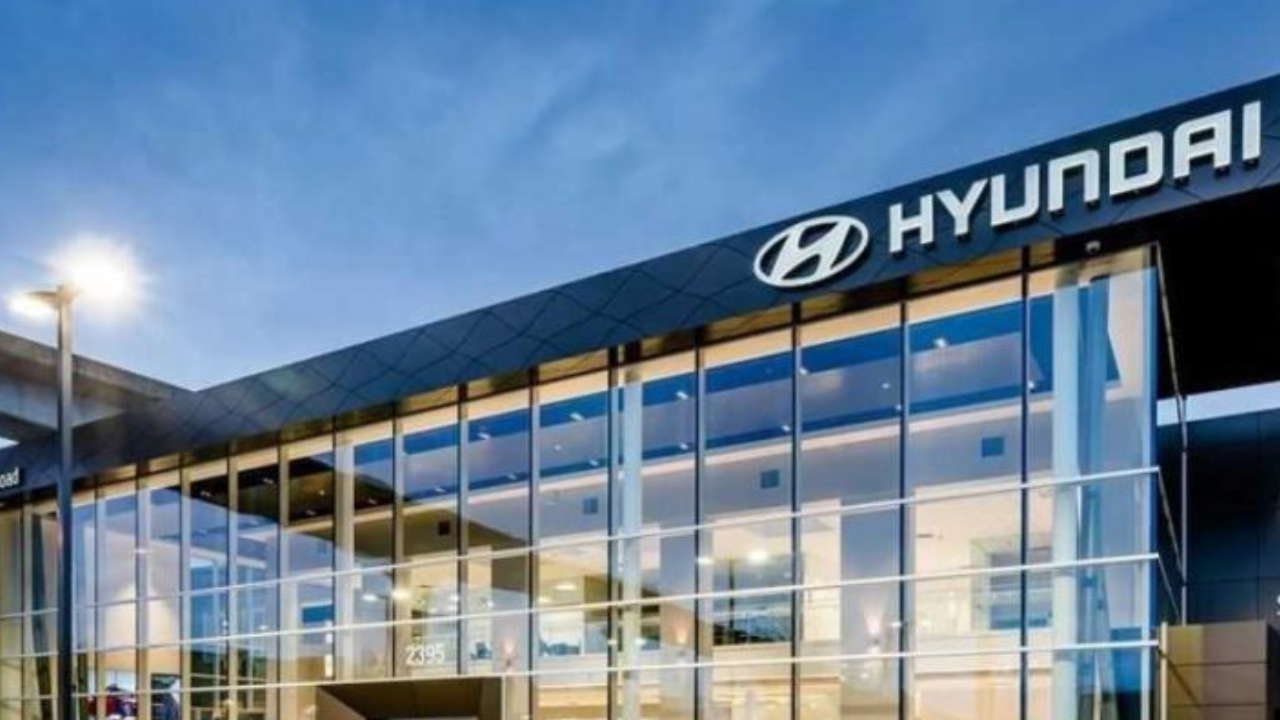
Hyundai Motor Group has spent the past three years building a sprawling 2,900-acre campus 30 minutes from Savannah, Georgia, to make electric vehicles and showcase the marvels of modern manufacturing.
Invited guests — and soon the public — can take tours of the factory. Visitors ride golf carts through cavernous halls, watching robots fetch parts for human workers. Mechanical arms weld panels onto the vehicle bodies.
Hyundai hoped the facility, in Ellabell, would become a shining example of car assembly, an image that also aligns with President Donald Trump’s desire to reindustrialize the nation. Even its name, Metaplant America, nods at the company’s ambition to make a public statement, not just another assembly line.
But then, last month, more than 300 South Korean workers, who the United States said were working on the wrong kind of visas, were shackled and detained at one of the facilities under construction there, a battery plant jointly owned by Hyundai and LG Energy Solution, both Korean companies. The raid led many in South Korea to call on Hyundai to pause its expansion in the United States.
It is plowing ahead. Hyundai Motor Group, which includes Kia and dozens of other affiliates and suppliers, plans to spend $26 billion in the United States through 2028, including an additional $2.7 billion in Ellabell.
The carmaker has little alternative. As Chinese brands become increasingly popular elsewhere, the United States market is not only Hyundai’s biggest, but one of its best growth opportunities, regardless of who sits in the White House. Between very high tariffs and other restrictions, Chinese cars have in effect been shut out of the United States.
“My top three priorities are U-S-A,” José Muñoz, CEO of Hyundai Motor Co., the car-making subsidiary, said at the company’s annual investor gathering after the raid in New York, pausing for effect after each letter. “If we do well here, it’s very good for Korea. It’s very good for the company.”
Yet risks abound. Electric vehicles have not been as popular in the United States as many expected. This month, the federal government stopped offering a $7,500 tax credit that was meant to encourage people to buy EVs. And, as the raid made plain, spending billions here is no guarantee of political favor. If anything, it demonstrated how foreign investment in the United States has become at once more urgent and more fraught in an age of “America First.”
Georgia’s political establishment strongly backs the plant, which is often described as the largest economic development project in state history. Gov. Brian Kemp, a Republican, views it as a part of his legacy.
But even before the raid, there were signs in Ellabell that tensions were building. Some residents abhorred the factory and the influx of foreigners it brought. Others have raised safety concerns, as three workers have died there since construction began. Yet some embraced the opportunities that have come with Hyundai’s investment.
Still the mixed response here reflects a deeper problem the company and others like it face in their desire to expand in Trump’s complicated America.
On a September afternoon, Tucker Sims sipped a beer at Rooster’s, a restaurant near the campus, as a group of South Korean workers sat together for lunch. A local handyman, Sims recounted seeing workers who appeared to be Latino plunge into a pond behind his house on the day of the immigration raid in an unsuccessful attempt to escape.
Sims said he welcomed the raid because he hated how Hyundai and its suppliers were changing the rural character of his hometown. He would never work in one of their factories, he declared, and neither would his relatives, even though the paper mill where some of them worked had recently shut down.
The mill “was American-owned,” Sims said.
Hyundai and LG are chaebols, powerful family-controlled conglomerates that occupy a special place in South Korean society. But American spokespersons for Hyundai have begun to describe the company as a global firm with Korean roots. In a sign of the growing importance of the U.S. market, this year’s annual investor day was held in New York City’s upscale Hudson Yards neighborhood, the company’s first such event outside Korea.
The Ellabell plant is the conglomerate’s third U.S. auto plant; it runs a factory in Montgomery, Alabama, and a Kia plant in West Point, Georgia. The company has pledged to create 8,500 jobs on the site by 2031, more than Ellabell’s population. About 3,200 people already work there.
With the American EV market growing more slowly than many carmakers had hoped, Hyundai plans to start making hybrids in Ellabell. It already manufacturers the all-electric Ioniq 5 crossover and Ioniq 9 sport utility vehicle. By 2030, Hyundai Motor Co. aims to make more than 80 per cent of all the vehicles it sells in the United States domestically, up from about 40 per cent today.
“This is Hyundai’s moonshot,” said Brent Stubbs, chief administrative officer for the Metaplant.
The campus dwarfs everything in sight. The main two-lane road near the plant, dotted with mobile homes and handwritten signs advertising okra, has been renamed Hyundai Way. The grocery store, once a Piggly Wiggly, is now a Viet Huong Oriental Market. A staffing agency across the street advertises in English and Korean on its message board.
It’s not just Ellabell that is being transformed. Across the region, factories are sprouting up as Hyundai’s suppliers and subsidiaries follow the South Korean automaker from Seoul. About 45 minutes northwest, in Candler County, another South Korean company called DAS Corp. is building a $35 million factory to make metal frames for automotive seats. Doowon Climate Control America, which makes heaters and air-conditioners for EVs, is building a $30 million plant in Candler County as well.
